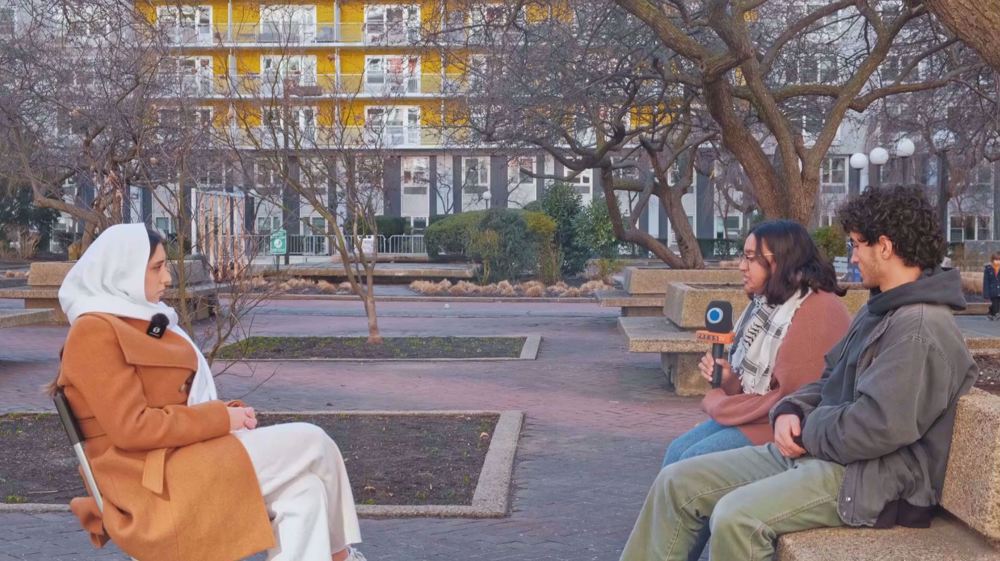Breakup of Iraq serves interests of US, Israel: Analyst
Leader of the Islamic Revolution Ayatollah Seyyed Ali Khamenei says the United States and Israel benefit from the recent referendum in Iraq’s Kurdistan region, stressing that Washington and some of its allies seek to create a new Israel. The Leader made the remarks in a meeting with Turkish President Recep Tayyip Erdogan in Tehran on Wednesday. Ayatollah Khamenei stressed that holding the Kurdish vote in Iraq was an act of betrayal against the region and posed a threat to the future of the Middle East, warning about the long-term repercussions of the vote for Iraq’s neighbors.
Press TV has talked to Richard Becker, a member of the ANSWER Coalition, as well as Michael Lane, member of the American Institute for Foreign Policy, to discuss the issue.
Becker believes it has been US policy for a very long time to break up Iraq, citing the 2003 invasion of the country which led to the creation of the semi-autonomous Kurdish region.
“The United States policy really relied upon one of pitting, of exacerbating the differences between groups which have been able to live together to a large degree- I mean it is not that there were no problems- but to exacerbate those differences into armed conflicts, very violent and vicious armed conflicts between different parts of the population and in effect did break up Iraq,” he stated.
The analyst also noted the policies of Washington are leading to the establishment of the so-called greater Israel state in the Middle East, adding that Tel Aviv itself is encouraging “divisive forces” in the region which can help break up regional countries.
Therefore, he said, Israel has developed relationships with the Kurdistan Regional Government (KRG) in order to pursue its policy of making alliances against the Muslim nation as a whole which opposes its creation as “a colonial implantation” in the region.
On September 25, the Kurdistan Regional Government held the non-binding referendum on secession from Iraq in defiance of stiff opposition from the central government in Baghdad and much of the international community. Kurdish officials said over 90 percent of voters said ‘Yes’ to separation from Iraq.
Political observers have warned that KRG’s referendum scenario is in line with Israel’s policy of dividing the regional Muslim states.
Becker further predicted that if Iran, Turkey and Iraq “completely shut off economically” the Kurdish region, it could create another big crisis in the Middle East.
Meanwhile, Michael Lane, the other panelist on the program, opined that the independence referendum was not surprising given their long-held aspiration for a homeland of their own.
He also asserted that there are a lot of “influential foreign policy players” who think that partitioning the Middle East is a correct solution.
However, he warned, while the balkanization policy may solve a number of “identifiable problems,” it will create a new set of issues.
Lane went on to say that there is a great deal of pressure from people who are "divided tribally, ethnically and religiously" in the Middle East to establish their own states.

The price we paid for freedom

ICC's arrest warrant for Netanyahu to worry Western politicians: Former British diplomat

Former FBI agent criticizes US Congress for 'outright corruption'
VIDEO | President Yoon of South Korea impeached, dismissed
Trump tariffs led to a $2.5 trillion wipeout for the US stock markets
VIDEO | Press TV's news headlines
Lebanese reporter resigns due to Hijab ban
'War crime': Israeli strike destroys water desalination plant in Gaza
China hits back with 34% tariffs on US imports as fears of global recession rise
VIDEO | Children of a lesser god
Israel’s crimes in Gaza surpass Daesh’s, all forms of terrorism: Report












 This makes it easy to access the Press TV website
This makes it easy to access the Press TV website